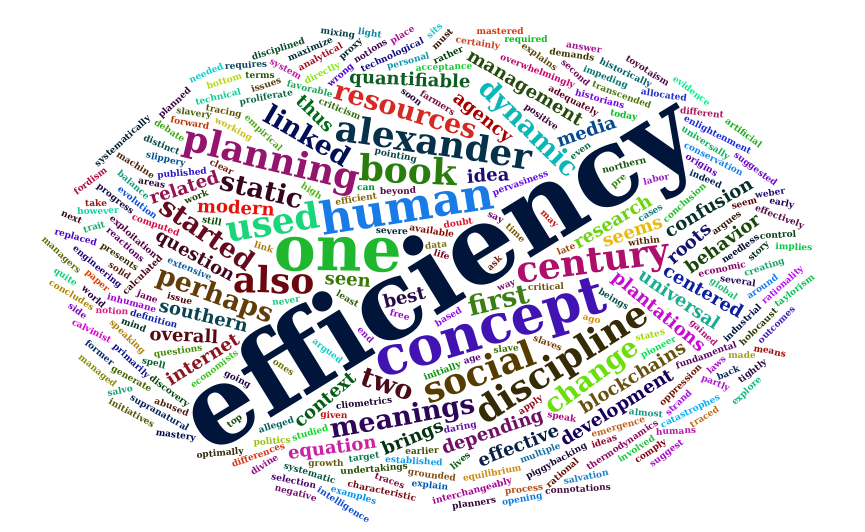Were 19th-century slaves working in the US Southern plantations more efficient than the free farmers of the Northern states? This was one of the critical questions two economists, one being a pioneer of cliometrics, studied in a book published in 1974. Based on extensive empirical research and data available at the time, their conclusion was positive and, at least initially, beyond any doubt.
While first reactions to the book were overwhelmingly favorable, criticism soon started to proliferate. Economic historians were the first ones to speak up, going after the definition of efficiency and the way it was calculated. Some argued that efficiency could not be computed adequately in such context. But perhaps the most fundamental issue was the link the book established between the alleged high efficiency of slave labor and the severe oppression and inhumane exploitation of human beings in the Southern plantations. In today’s global context, daring to ask such a question seems to be pointing to the wrong target.
This is one of the several cases the book by Jane K. Alexander presents while tracing the evolution of the concept of efficiency since the late 18th-century. Alexander argues that efficiency is a “slippery concept” that has multiple meanings, depending on who is speaking. We even apply it to our personal lives and undertakings, never mind work. Indeed, it is an idea that has gained universal acceptance.
The modern origins of the concept had solid technological roots, piggybacking on the emergence and almost universal development of the industrial age. But efficiency transcended such roots in the earlier 20th-century and started to be used in most other areas of social life, including politics. Needless to say, the Internet, social media and blockchains are also under its spell.
Alexander traces down two distinct meanings of efficiency. The first one is static efficiency which is centered on balance and conservation of quantifiable resources used within a given system or machine. This notion is grounded on the development of engineering and the discovery of the laws of thermodynamics. Here, efficiency is primarily seen as a technical concept, which is universally quantifiable. The second strand is dynamic efficiency is centered on growth rather than on equilibrium and is related to ideas of change and the overall social progress. Efficiency here is directly linked to human agency and brings forward issues related to management, planning, and discipline.
While on paper they seem to have clear differences, these two notions have been used interchangeably thus creating not only overall confusion but also impeding the systematic use of the concept in analytical terms. This confusion around efficiency partly explains the slavery efficiency debate started in the 1970s.
But that is certainly not the end of the story.
Historically, efficiency has been linked to human agency. While in the pre-modern world efficiency was seen a supranatural trait, the Enlightenment made it a human characteristic. Rational behavior is perhaps one of its best proxy and one that is systematically used to explain human behavior. However, that same rationality has been abused to generate catastrophes such as the Holocaust.
Being that as it may, efficiency is tightly linked to both planning and discipline. Planning demands efficiency as resources must be allocated optimally to ensure change does take place. Planning thus requires effective management of resources, including the humans involved in the process. This brings up the concept of discipline which can be traced back to the Calvinist idea of divine selection for effective salvation, as Weber suggested over a century ago. But such bottom-up discipline has effectively been replaced since by top-down control which is required to ensure planned outcomes maximize efficiency, both static and dynamic.
In this light, efficiency also has different meanings depending on which side of the equation one sits. Efficiency for managers and planners is not quite the same as that for those who are managed and disciplined to comply with the former. As Alexander concludes, while efficiency means mastery, it also implies being mastered. Taylorism, Fordism, and Toyotaism as perhaps best examples here.
The question to explore next is if the Internet, social media, artificial intelligence and blockchains change the efficiency equation. Early evidence seems to suggest a negative answer. Most of the initiatives here use efficiency as their opening salvo while still mixing up its static and dynamic connotations.
But more research is needed.
Cheers, Raúl

